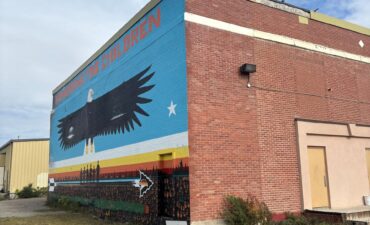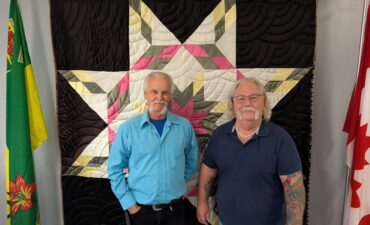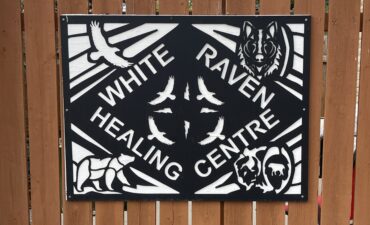
Orange Shirt Day is happening on September 30 and Indigenous students and educators alike are taking part in the event.
The event was started in 2013 as a way to raise awareness about Indian residential schools in Canada.
Mick Favel is an Indigenous student studying journalism at the University of Regina. He said he is participating in Orange Shirt Day this year and has for the last three years.
“It wasn’t until recently, probably the last 15 years, that [residential schools] was brought to the public’s attention,” Favel said. “I hope Orange Shirt Day continues on and I hope it brings awareness to people who may not have known.”
Favel said the event not only shows support for the residential school survivors, but to their descendants as well.
“I’m the first generation of my family not to go to residential school, every First Nations person that I know has been affected in some way by residential school,” Favel said. “It’s really nice when people wear their orange shirt because it’s like ‘I acknowledge that this happened to you.’
“You’re acknowledging the history that has been hidden in our country for so long.”
Keisha Desjarlais is a Grade 8 and 9 teacher at Chief Sabitawasis School on Fishing Lake First Nation. She said her class is participating in Orange Shirt Day a lot differently this year due to the COVID-19 pandemic.
“We are going to be celebrating it online and in our online classroom,” Desjarlais said.
She said one of the writing activities she has planned for her students is for them to recount stories from family members about residential school.
“It’s really just getting them to collaborate and talk with one another about how residential schools have affected not just them but also our class as a whole and our school and our community as a whole,” Desjarlais said.
Desjarlais said she was considering showing the film “Indian Horse” to her students but decided it was too mature.
“Not to say that I want to censor or shelter them from the truth of what happened,” She said. “Residential school is such a sensitive topic that as teachers we have to be able to read our class and know how they’re going to perceive that information that you’re sharing.”
“What you don’t want is for them to go home and retrigger their parents, their grandparents.”
Favel said the lasting effects of residential school are often downplayed and he feels intergenerational trauma is still a part of today’s society.
“Just thinking about the history of it like my parents went, my grandparents went, their parents went,” Favel said. “It’s still affecting me but I see where I want that to end.”
Desjarlais said she teaches her students about intergenerational trauma.
“Our people didn’t just wake up one day and decide that we were going to be like this,” Desjarlais said, “Who we are and what we are is generations and generations of policies placed onto us telling us what we need to be.”














